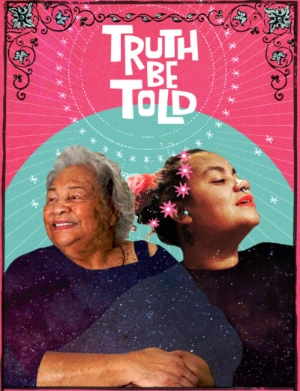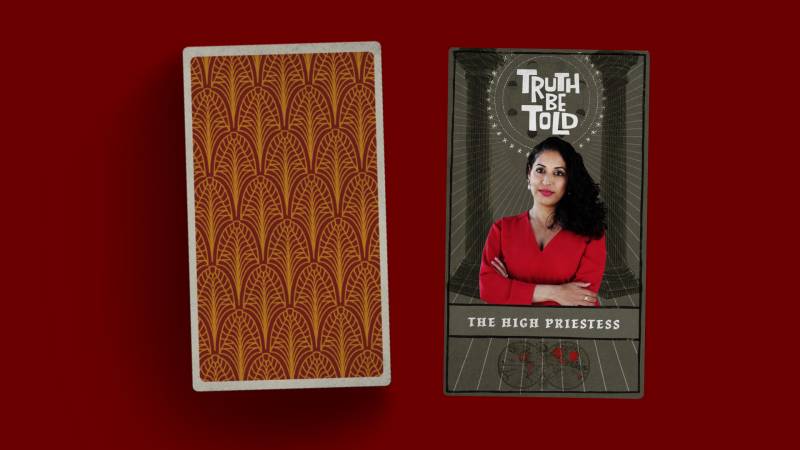Yasmin was our Truth Be Told question asker for “Joy,” the very first episode our first season of the podcast. Her question was, “Is it OK to feel joy when the rest of the world is burning?” In this episode about how the coronavirus is impacting people of color, Mosley asked Yasmin if she is currently using any of the advice she was given.
“You know, thinking back to that question, it was about joy, but I think it was also more broadly about the permission to feel things — anything. And so I think in a moment like this, where you feel so many emotions, including anxiety, fear, anger, that advice that I got, reminds me that it’s OK to feel whatever I feel. So I feel very honored right now. You’re having me on as a wise one, but truth be told, this wise one is struggling also … it’s a lot.”
So, let’s revisit the sage guidance offered by two wise ones from our very first episode – adrienne maree brown and Tonya’s grandmother, Ernestine Mosley.

1. Faith/Spirituality: Set intentions, pray, worship, meditate. Reacquaint or deepen your relationship with nature.
2. Rituals: Care for your body (baths, exercise, adornment). Feed your soul (read, write, create, cook). Do anything that brings you joy.
3. Look for the helpers, and help the helpers: Find ways to be generous with each other or lift another’s spirit. Redirect your attention on the solution-makers in a crisis. Find ways to support those helpers for the collective good.
4. Connect with the self: Go on dates with yourself, take an inventory of yourself and your life, write down the spaces you feel in complete alignment with yourself in your life (i.e. my role as an auntie), or walk around your home naked while looking at your miraculous body.
5. Connect with those you love and who love you: Reach out to people who make you feel loved and check in on someone you’ve been thinking about. Also, try to laugh as much as you can. Laughter, intimacy and connection are necessary to survive and embark on the freedom journey.
Remember, it is absolutely necessary to feel joy in these times. You don’t have to earn it. You deserve it.
We appreciate everyone who has helped with the creation of this episode. Special thanks to all of our question askers, Cynthia Choi, and KQED’s Kyana Moghadam and Vida Kuang.
Episode transcript can be found here.
Experienced or witnessed a hate crime? The Asian Pacific Policy and Planning Council (A3PCON) and Chinese for Affirmative Action (CAA) have launched a reporting center to allow community members to report incidents of hate they have experienced. You can find out more by visiting www.a3pcon.org/stopaapihate.
Episode Guests:
Dr. Seema Yasmin, medical doctor and author of “The Impatient Dr. Lange: One Man’s Fight to End the Global HIV Epidemic”
Recommended Articles:
Artists Fight Coronavirus-Related Racism on Instagram from KQED Arts
Washing Your Hands and Getting a Grip from KQED Arts
Why Pandemics Activate Xenophobia from Vox
Chinese Americans Worry About Backlash as Coronavirus Fears Mount from Voices of America
The Rise of Coronavirus Hate Crimes from The New Yorker
As Chinese Exclusion Act Turns 135, Experts Point to Parallels Today from NPR CodeSwitch
Recommended Listening:
To Be Asian With a Face Mask During the Coronavirus Outbreak from KQED’s The Bay
When Xenophobia Spreads Like a Virus from NPR’s Code Switch
Coronaracism With APEX Express from KPFA (timestamp 28:00 – 37:55)
Racism in the Time of Coronavirus from Long Distance Radio
Recommended Books:
America for Americans: A History of Xenophobia in the United States by Erika Lee
Contagious Divides: Epidemics and Race in San Francisco’s Chinatown by Nayan Shah
Colonial Pathologies:American Tropical Medicine, Race, and Hygiene in the Philippines by Warwick Anderson
Fit to Be Citizens? by Natalia Molina
Medical Apartheid by Harriet A. Washington
Killing the Black Body by Dorothy Roberts
Body and Soul: The Black Panther Party and the Fight against Medical Discrimination by Alondra Nelson
The Deepest Well: Healing the Long-Term Effects of Childhood Adversity by Nadine Burke Harris
Examining Tuskegee: The Infamous Syphilis Study and Its Legacy by Susan M. Reverby
The Immortal Life of Henrietta Lacks by Rebecca Skloot
Science at the Borders: Immigrant Medical Inspection and the Shaping of the Modern Industrial Labor Force by Amy Fairchild
Have a question for the show? Email us at truthbetold@kqed.org, call us at (415) 553-2802 or use the hashtag #AskTBT. Follow us at @truthbetoldkqed on Twitter and Instagram.

